With the winning score being 7/40, this year's national math exam results are at a record low, many teachers are upset because the exam is too difficult.
According to the results of the national excellent student exam, announced by the Ministry of Education and Training on the evening of January 25, the Math subject had 262 winners out of 607 contestants, equivalent to more than 43%.
Of which, 11 students won first prize (from 22/40 points or more), 56 second prizes (from 16 points), 87 third prizes (from 11.5 points) and 108 consolation prizes (7 points or more).
"This year's scores are at a record low," commented a teacher who trains the national math team in the North. He said that 2019 was the year when the national math exam scores were assessed as "unprecedentedly low", the consolation prize was also from 7 points or more, but the second prize was from 16.5 points and the first prize was 24 points, higher than this year. In the following years, candidates had to score at least 13.5 points to get the consolation prize, and in some years, it was even 18.5 points.
By locality, 11/70 participating units "did not" win any prizes in Math. Of the 59 units with prizes, 31 localities only had 1-3 prizes, mostly consolation prizes.
Dr. Tran Nam Dung, Vice Principal of the High School for the Gifted, Ho Chi Minh City National University, questioned why the organizing committee did not take the Math achievement rate as 60% as the maximum allowed (according to the exam regulations), but only took over 43%. He said that this was a disadvantage for the candidates and the participating units, causing disappointment for teachers and students.
"If the winning rate is 60% of the total number of contestants, the consolation prize score could drop to 4.5-5. Perhaps the score is too low, and the organizers are worried about public opinion and controversy, so they set it at 7 points or higher," Mr. Dung predicted.
In recent days, on Math forums, the results of the gifted student exam have also received attention, attracting thousands of interactions. Many people were surprised and indignant at the extremely low Math scores.
Regarding the reason for the low Math scores, Mr. Dung assessed that the test was difficult. The Math test consisted of 7 problems, divided into two sets, corresponding to two test days (four problems on the first day, three problems on the second day), each day lasting 180 minutes. Mr. Dung said that he tried to solve the problems, and sometimes he "scratched his head", not to mention the students.
"Those are teachers with a lot of experience, solving problems in a comfortable environment. But the solutions are not beautiful, but very vague and lengthy. The organizers' answer is 15 pages long, unbelievably long," said Mr. Dung.
This is also the opinion of a teacher who trains the national team in the north. This teacher sees the positive side that the exam has broken the old pattern by reducing from two to one geometry problem, different from previous years. But the exam still has many "unpleasant" things when the content is not evenly distributed, with 3/7 problems related to polynomials. Not to mention, the exercises that require making assumptions have too many cases, the numbers that need to be calculated are very large, while students are not allowed to use calculators.
As for problem 4, the last problem in the first day's exam, it took this teacher two days to solve. He affirmed that given the time limit of the exam, as well as the pressure of the exam room, solving that problem was almost impossible.
"The exam questions must take into account feasibility, whether a student can do it in that amount of time or not. The teachers in the exam committee should try solving them in similar time and conditions to the exam room to evaluate," said this teacher, adding that many students this year handed in blank papers, listless after two days of math exams.
Math questions and answers for national excellent student exam
Concerned that easy questions would reduce the quality of candidates, the teacher said that the national excellent student exam is the first round to select the International Mathematical Olympiad (IMO) team. After this round, more than 40 students with the highest scores will enter the second round to select 5-6 excellent candidates.
"The Olympic selection round is very difficult, so the national round should be a little easier to encourage students. Good students will still get good results," he said.
Mr. Dung also said that the problem was completely within the organizing committee's ability to adjust, but this unit "did not bravely take the difficulty upon itself but instead pushed the disadvantage onto the students."
According to him, when making the exam questions, the organizing committee certainly knew that the exam questions would be much more difficult than previous years. If they wanted the award points to be higher, they could adjust the exam questions. On the contrary, if they determined that the exam questions were too difficult, the organizing committee had to accept that the standard score would be low because the candidates could not do the test.
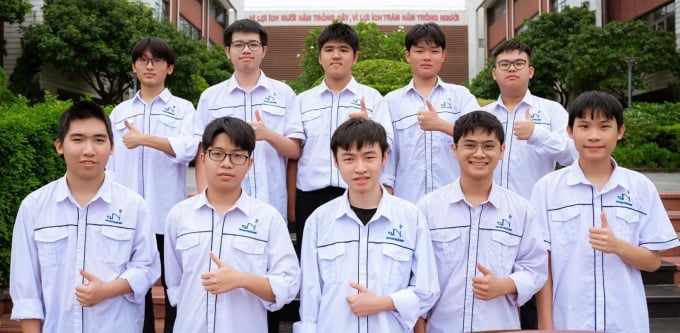
Bac Ninh province's national math team. All 10/10 contestants won prizes in this year's exam. Photo: School's fanpage
Representative of the Mathematics Professional Group and the Examination Council of the Ministry of Education and Training, Professor, Dr. Do Duc Thai said that the Math exam has strong differentiation, the professional group and the examination council have carefully considered the factors, based on the actual work of the students.
"The award-winning students have reflected their true abilities in the spirit of real learning, real exams, and real talent," said Mr. Thai.
Regarding the reason for only taking 43% of the prizes, instead of the maximum 60% as per the exam regulations, the leaders of the Ministry of Education and Training did not respond.
Teachers believe that candidates who take part in the national exam all have certain talents, have spent time and effort, and need to be encouraged according to their abilities. Exams for gifted students are also one of the ways to encourage students to love and be motivated to study Math, but "setting questions that scare students" makes it difficult to develop their love for Math.
"I know many remote provinces where teachers and students are so passionate that they go to other provinces to find good teachers to study with. Just a consolation prize is enough to make them happy, not the benefits of direct university admission or bonuses. The organizing committee should encourage that spirit under conditions that do not violate regulations," said Dr. Dung.
Thanh Hang - Le Nguyen - Duong Tam
Source link


![[Photo] Prime Minister Pham Minh Chinh attends the groundbreaking ceremony of two key projects in Hai Phong city](https://vphoto.vietnam.vn/thumb/1200x675/vietnam/resource/IMAGE/2025/9/27/6adba56d5d94403093a074ac6496ec9d)







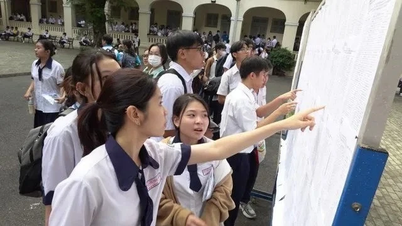

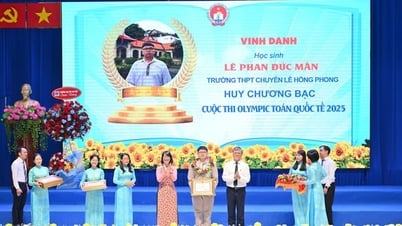





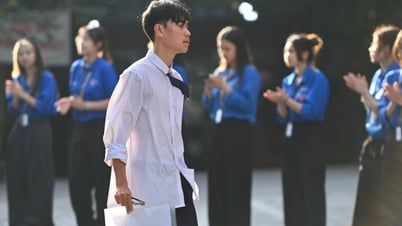







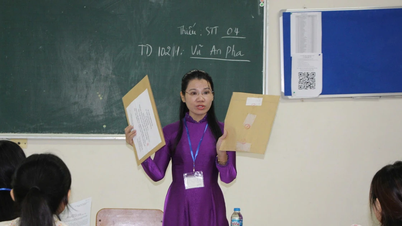









































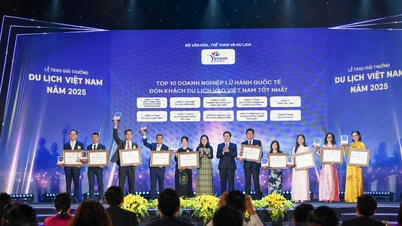

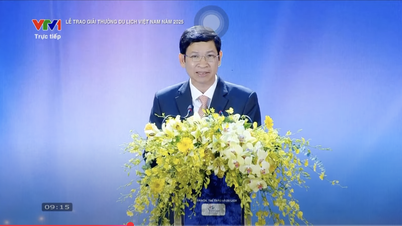













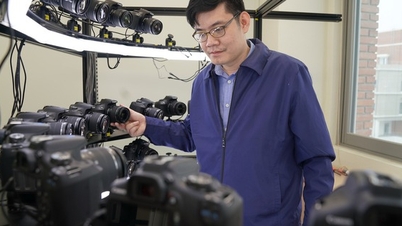




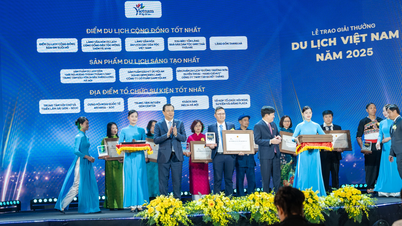

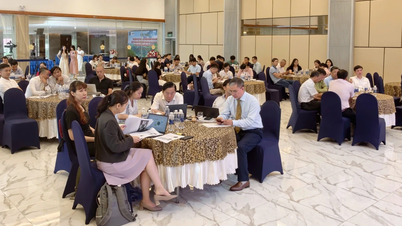



















Comment (0)